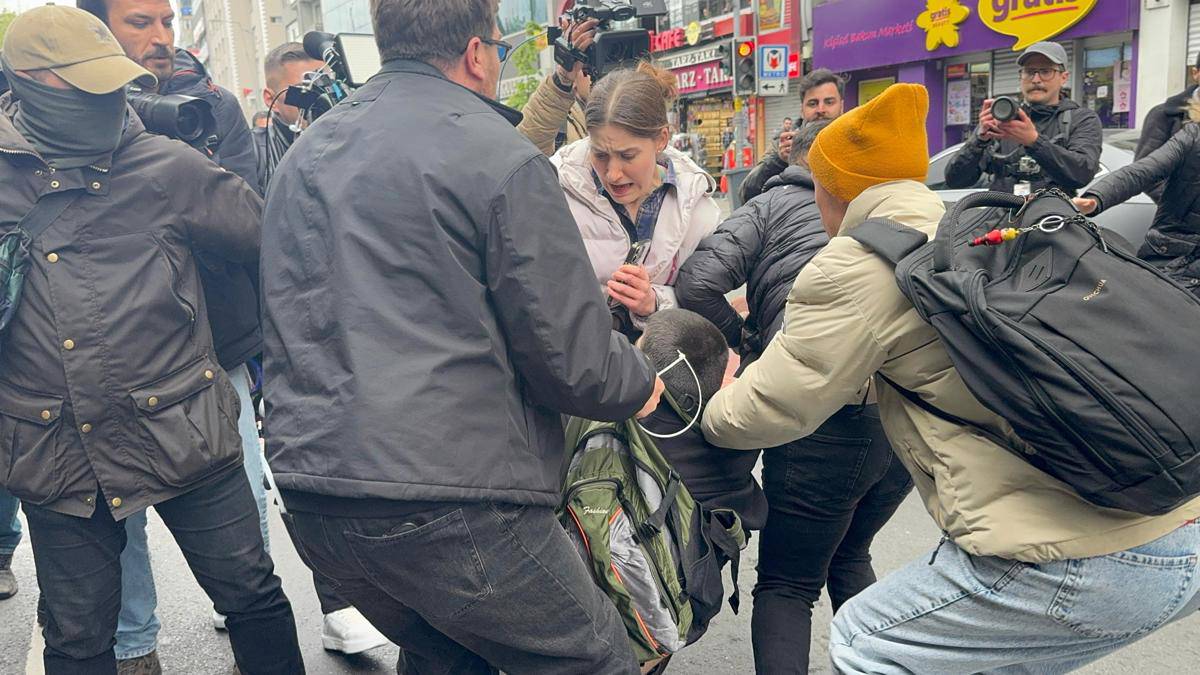May Day in Asia: protests, arrests and calls for (denied) social justice
From Turkey and Iran to the Philippines and Japan, International Workers’ Day saw thousands of people take to the streets for workers' rights, often faced with violent clampdowns. Key demands include higher wages, social equity, and peace as well as criticism of global economic policies, especially Trump's tariffs. In Istanbul, hundreds are arrested; in Iran, teachers are beaten, while in Hong Kong, labour protest is now a fading memory.
Rome (AsiaNews/Agencies) – Once again this year, May Day, Workers' Day, saw a wave of protests and events aimed at highlighting labour rights.
Celebrated for more than a century around the world, the day was full of activities in several countries of Asia and the Middle East.
From Turkey to the Philippines, thousands of people took to the streets; in some cases, protesters clashed with police, and some were arrested.
Rallies and demonstrations focused this time on growing uncertainty and unease over US President Donald Trump's tariff policy, and the potential for global economic instability, which would inexorably affect people's lives.
In the Philippines, hundreds marched in the streets of the capital, Manila, clashing with law enforcement. Protest leader Mong Palatino warned that “tariff wars and policies of Trump” threatened local industries.
In Japan too, protesters in Tokyo highlighted international economic battlegrounds, which cast a shadow over workers, whereas their rights should be promoted instead.
Protesters' demands included higher wages, gender equality, health care, disaster relief, and no shortage of appeals for peace in Gaza and Ukraine.
In Istanbul, people filled squares and streets despite the ban on public gatherings, especially in Taksim Square – according to restrictions imposed in 2013 and still in force – and in Istiklal Avenue, both iconic places for public protests in the country’s business capital.
As a result, Turkish police tried to block people heading towards the square, arresting hundreds of protesters. In some cases, they carried out preventive arrests - as reported by Amnesty - in private homes in the days leading up to 1 May, to prevent crowds from forming.
Videos show police in riot gear charging protesters. The latter held signs and chanted slogans while police forcibly pushed many onto buses prepared for the occasion. About 400 arrests were executed, almost all in Istanbul. More than 286,000 people protested in 78 provinces.
In Kadıköy, on Istanbul’s Asian side, “peaceful”, government-approved protests were also staged. Thousands of people belonging to trade unions and professional associations participated, as did members of the opposition Republican People's Party (CHP), who called for jobs, democracy and justice.
“We will win for labour, peace, democracy, and justice;” read a slogan at the rally, which moved towards Rıhtım Square. While the action was peaceful, security was tight.
A CHP official called bans “a reflection of the regime of repression,”
In Iran, Workers’ Day saw teachers mobilise, and a violent crackdown, with many protesters beaten. A group of active and retired teachers gathered outside the Ministry of Education headquarters in Tehran.
Promoted by the Coordination Council of Iranian Teachers' Trade Associations, the demonstration saw a strong security presence. According to eyewitnesses, the police dispersed the gathering, stopped people from taking pictures and arrested several participants.
Similar gatherings were reported in other Iranian cities, eliciting similar repressive actions by the authorities.
Throughout the day, Iranian government officials tried to ease tensions and reassure workers facing increasing economic hardship. Government spokeswoman Fatemeh Mohajerani addressed wage concerns, acknowledging that although a 45 per cent increase in minimum wages was approved by the Supreme Labour Council, “inflation has eroded much of that gain.”
To mitigate the impact on low-income households, she noted that the government is still committed to “remedial policies” like food coupons and subsidies for vulnerable groups, including mothers and pregnant women. The authorities announced that cutting inflation remains the priority for workers.
In Hong Kong, no rally was held for the sixth consecutive year. “The organisations and volunteers holding flags and banners have become distant memories, having vanished for the sixth year,” reads a statement by the League of Social Democrats (LSD).
Four representatives of the pro-democracy party gathered outside the government building on this occasion, demanding that the city's working class be granted "dignity" amid economic uncertainties. “Be it in the workplace, in life, or in society, we must live as human beings,” the statement said.
Police stopped LSD President Chan Po-ying, whose husband is in prison for "conspiracy to commit subversion”. She lamented the lack of democratic representation in the city's Legislative Council.







.png)










